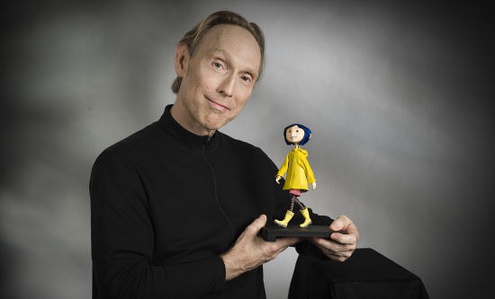第82届奥斯卡颁奖典礼 The 82nd Annual Academy Awards(2010)

又名: 2010第82届奥斯卡金像奖颁奖典礼 / 第82届美国电影学院奖
导演: Hamish Hamilton
类型: 音乐
制片国家/地区: 美国
上映日期: 2010-03-07(美国)
片长: 217分钟 IMDb: tt1541775 豆瓣评分:7.1 下载地址:迅雷下载
演员:
影评:
- 奥斯卡刚刚落下帷幕,网友们暴风骤雨般的为《阿凡达》鸣不平,中国的媒体有个奇怪的引导,把此次奥斯卡的格局定义为卡梅隆和卡梅隆的前娘子一决雌雄,完全没有注意到此届提名影片可以说一部比一部优秀。而《阿凡达》的呼声和其结果导致中国影迷的失望,就和上一届有人为《黑暗骑士》打抱不公一样,并不是说人人喜欢的票房炸弹就可以夺得头彩,我相信如果有个影迷大众奖,那想必是《阿凡达》了。当然我们也不要总端着非此即彼的思维模式,就此给奥斯卡套上“美国人的游戏”、“学院的怪品味”、“让垃圾片得奖”诸如此类的怪话。古往今来,科幻片是从来没有得过学院大奖的,这并不是美国人的问题,如果放在欧洲,科幻片可能连提名都轮不上,而此次,《阿凡达》得到包括最家影片、导演在内,高达9项提名,在技术上也得到了肯定,其实已经是莫大的荣耀了,而主题上,《与狼共舞》已经很好的诠释过类似题材,那么奥斯卡也没必要在重复自己。
《阿凡达》不得奖,得奖的就被贬成烂片,这是我们一贯的思维,《阿凡达》等一系列科幻片在中国从媒体到观众,如此全方位的追捧,也从一个侧面反映出我们想象力的压抑。《拆弹部队》大放异彩其实一点都不意外,它的表现手法真的很新颖,成本低然而很精致,我们很多声音把此片当作“美国主旋律”其实是很荒谬的,莫大的误读(非要硬套,今年最主旋律的美国片应该是《变形金刚2》才对)。我都不知道他们看没看过这部影片,首先在英文里就没有主旋律这个概念,其次本片的基调根本就在“反英雄”,它把一个貌似的英雄塑造成了一个对战争迷恋成瘾从而丧失人性的荷尔蒙机器。如果《拆弹》不得奖,那么还有昆丁《无耻混蛋》这批黑马在候着,考虑到奥斯卡还不能接受昆丁的戏谑,那么《在云端》如此优秀的电影和乔治克鲁尼极其状态的表演,也不是等闲之辈,所以我想不出有什么理由要把大奖颁给《阿凡达》。
《拆弹》的原创剧本算是实至名归,不然也不会吸引那么多大牌纷纷来客串被炸烂射死的角色。最让人感动的是老戏骨杰夫·布里吉斯,上镜造型让我想起《谋杀绿脚趾》里的那般邋遢的潇洒。女主角桑德拉开始表现的很平静,但最后还是控制不住激动的心情,一个金酸梅让她委屈坏了吧,这个奖也是对金酸梅莫大的讽刺。男配角克里斯托弗·瓦尔茨可以留名千古了,最佳外语片真的是一匹黑马,要知道同时提名的有多么的强大。
影迷们一个个卡神卡神的叫着,我觉的这很矫情,我一直卡梅隆的粉丝,但我更是个影迷。 - 前歪嘴卡车司机詹姆斯·卡梅隆迄今为止有五位妻子,前四任一任不如一任,且婚龄维持一直呈现递减趋势:第一位维持7年,第二任维持5年,第三任维持三年,而第四任仅仅维持了18个月。在这四任中,凯瑟琳·比格罗位列第三,却是最有话题性的一个。
奥斯卡未颁奖之前,纸媒、网络一片形势大好:卡梅隆大战前妻。怀着不可告人的目的,我还真诚希望这位充满力量、身高1.82米的前妻与卡梅隆大干一场。即使不拼个你死我活,那起码也得来个头破血流哇。
不信且看:第一任乃一区区服务生,道不同自然也打不起来;第二任是制片人,鉴于商业原因,两人离婚后再度合作几把是正常现象,谁会跟钱过不去呢;第四任嘛,算是不甚知名小女星,如果没有熬到红得发紫,实在难以与自称“世界之王”的卡梅隆对战。
数来数去,唯有比格罗可以与卡梅隆相提并论,看看她都拍了些什么样的片子吧:混乱摩托车手的《无情》;年轻牛仔《血尸夜》加入吸血鬼家族;冲浪手策划连环银行劫案;以及一听名字便冷酷十足的《寡妇制造者》……当然还有对战争上瘾的《拆弹部队》!这些片子一一列出,不用说都知道比格罗在讲什么:那人那活儿,我能干的更牛逼!
确实,她拍的片子离女性趣味如此之远,却又难得并没有沾染上万恶的女权气息。她既不破口大骂,也不一根接一根地抽烟,当然她长的还挺漂亮。奥斯卡红毯上,她并不比所谓女星黯淡,反倒因高挑的身材和蜷曲的头发显得高贵不可侵犯。
这样一个人,你难道不希望她跟卡梅隆打上一架吗?
可偏偏他们互相看着顺眼,又互相恭维,金球奖卡梅隆获得最佳导演,她不管真心或假意地吹捧:你把门槛抬高了。意思大概是,卡梅隆获得金球奖实至名归。卡梅隆当然也不甘示弱: 她在电影上极具天赋,但常常被忽视,这是一个迟来的认可。又略微骄傲的称:我没有准备好拿这个奖呢,我以为这个奖是凯瑟琳的。
相比这无趣的现实来讲,我更喜欢这个段子。说比格罗在接受采访时,如此赞美卡梅隆:“不同于我们新婚之夜,这次我被彻底征服了。”从译言网上看到这句话时,我相信这句话是真的。它不但语气逼真,而且充满幽默感,能够满足我阴暗的心理:这种大奖,不争个头破血流怎么对得起如此多看热闹的观众?
可惜的是,这就是一个段子。比格罗依然紧闭嘴巴,不过当她获奖时超卡梅隆的一回头,不知卡梅隆心理在想什么。拿出蓝领风范大骂一声:son of bitch,还是保持风范强颜欢笑?大概什么表情都不好做,所以干脆环顾左右。当我看到这张图片时,说实话,心理挺爽。
比格罗终于获奖了,打破了81年无女性导演获奖的记录。国内一干文艺妇女一个个高呼:这次奥斯卡为妇女节献礼了!
忽然想起来洪晃说:说一个女的三八是骂她,那谁过三八谁三八。算了吧。还有一个是劳动节,别逗了,现在还有人觉得劳动光荣吗?就是咱不尊重谁,就给谁来个节日是吗?你说可不是怎么着,比格罗这么牛气了,报纸刊登出来,还不是说卡梅隆前妻。卡梅隆获奖不获奖,都少不了曝光率。
看来,“战士的责任重,妇女的冤仇深”这句话诚然没错。一个节日帮助不了妇女,一个比格罗也不可能就给广大妇女带来切实利益。且看比格罗怎样看待这件事吧:如果说女人拍电影确实存在着阻力,那么我只会选择无视之,无非也就有两个原因成为了障碍:我不能改变我的性别,我也不会停下来不拍电影。
按照比格罗的指导思想,对于那些性别歧视的工作,似乎我也只能说上一声“去你妈的”,然后继续埋头苦干了。 - 本届的奥斯卡最风光的两个女人,无意是抱得最佳导演的Kathryn Bigelow和最佳女主的Sandra Bullock. 首先来说Kathryn, The Hurt Locker(最佳影片)的导演。不得不提的她的一个身份就是Avatar导演James Cameron的前妻。当然,我这里并不是为了八卦两人之间的恩远情仇,只是没事翻了下两人的简历,一看之下,让我大吃一惊。看两人的外表,James已经头发完全银白,然后给人的感觉跟真实年龄差不多把,估计还要更老,但是看Kathryn,感觉就是30来岁,最多40。本来外国人就不是很注重保养,估计最多Kathryn也就40多吧,结果人家是51年的,原来人家已经59岁了...本来觉得比他大不少的James, 结果比她还要小两岁。看来离开了James,Kathryn活的更加精彩。不知道James看着光彩四射的前妻击败他拿到最佳导演和影片,心里作何感想?忽然又想起了Nickel Kidman, 离开了阿汤哥,事业爱情更是风生水起。
结论:
其实这个世界上没有谁少了谁就不能活的精彩,放下过往的一切,大好的风景在等着我们。
其实这个世界上,真正能够给自己幸福的,只有自己。
下面说说另外一个人,最佳女主,Sandra Bullock,今年她很火,the proposal看得那是一个感动阿,也在电影院看了几次the blind side的预告片,感觉她的确很投入,很不错。记得当时the proposal上映票房不错的时候,大家都说Sandra Bullock是咸鱼翻身,好吧,咸鱼翻身就翻身,要翻咱们就翻个大的,直接把小金人抱回家。在好莱坞这种美女层出不穷的地方,翻身的难度,怕是不亚于中彩票吧。机遇很重要,但是自身的努力更加重要。
结论:
在低谷的时候,很容易放弃,很容易看不到光明。但是,就在周围所有人都不看好或者都失去希望的时候,你自己不能放弃自己,如果你放弃了,你就永远是一条没法翻身的咸鱼。
其实这个世界上,真正能够改变自己的未来的,还是只有自己。 - 这是主流媒体吧,这算中立观点吧。
原文
All night long, the jokes kept coming on the same subjects: Avatar this, George Clooney that. Sandra Bullock, accepting her award for Best Actress, acknowledged "all the people who didn't" help her, including "George Clooney, who threw me in a pool. I still hold a grudge." Ben Stiller showed up painted like a Na'vi to introduce the makeup category (for which Avatar wasn't nominated), and the Argentine winner of Best Foreign Language Film thanked the Academy "for not considering Na'vi a foreign language."
It's the classic comedy strategy of the have-nots making fun of the haves, and the hoary Oscar tradition of using famous movies and celebrities as the punch lines to jokes understandable to the mass of viewers — most of whom haven't seen, and might not have heard of, the smaller films and actors, who tend to get the awards. Oooh, Avatar, $2.5 billion at the box office ... Heh heh, George Clooney, world's coolest movie star ... Rim shot.
Except that on Sunday night, the haves had not. Clooney did not win an Academy Award, and neither did the film he was nominated for, the early front runner (and utterly Oscar-worthy) Up in the Air, which even failed to cop its expected prize for Best Adapted Screenplay. Avatar won only three of the nine categories for which it was eligible — the door prizes of Cinematography, Art Direction and Special Effects — and its begetter, James Cameron, supped on the special gall of losing Best Picture and Best Director to The Hurt Locker and his ex-wife Kathryn Bigelow, respectively. The Hurt Locker was also up for nine Oscars. It won six, and the evening's bragging rights.
No question, The Hurt Locker is a near perfect war film and an excellent choice for Best Picture. Bigelow's job wrangling this orphan project into shape, and her shot-by-shot mastery of the story, should be considered no less impressive than her swaggering hero's effectiveness in defusing bombs on Baghdad streets. The same goes for Mark Boal's winning screenplay, based on his reporting for a Playboy nonfiction piece about IED squads (which really should have put the script in the Best Adapted Screenplay category).
But The Hurt Locker's Oscar haul had less to do with the movie's merits than with the Academy membership's make-up and mind-set. Remember, to win Best Picture you don't have to make the best picture; you have to make the picture that appeals to the voters, who are older, politically liberal and artistically conservative. Here's how those and other factors may have played in The Hurt Locker's favor — and doomed Avatar.
1. Age. For the Oscar voters, who are at the senior end of the demographic spectrum from the mass audience, which most movies are made for, the most convenient way to see the nominated films is on screeners at home, where The Hurt Locker plays just fine. A Lourdes miracle would be needed for the Academy geriatrics to throw away their walkers and actually go to a theater — the only place Avatar can be appreciated in all its 21st century splendor. Filmmakers rushing to the 3-D format had better learn to be satisfied with the boodle they earn at the box office and not expect to win Oscars for a project that doesn't look like an HBO movie.
2. Size. Over the decades, the membership has shown a fondness for small dramas with an obvious social message and a prejudice against gigantic science-fiction pictures that use pioneering techniques to create a compelling new world — albeit with their own obvious social message. Avatar is every bit as political as The Hurt Locker in its eco-friendly theme, and much more boldly anti-military: by the end of the movie, viewers are meant to be cheering for the deaths of the U.S. soldiers trying to occupy Pandora. It didn't help. The Oscar voters saw Avatar (if they did watch it) as just another genre film. No sci-fi movie has ever won Best Picture.
3. The Shock of the New. Not to generalize about old people, like the typical Academy member, but every one of them is resistant to change or novelty. Anything new in movies seems less like progress and more like a renunciation of the artistic standards they were nurtured on. Consider that in 1942, the Academy gave its top awards, Best Picture and Director, to John Ford's How Green Was My Valley, a poignant evocation of a Welsh mining town. Fine, honorable, fully worthy. The film it beat: Citizen Kane. Who needs all those low-angle shots, the deep-focus cinematography, the oblique, multifaceted view of a powerful publisher? Those aren't innovations; they're ostentations — cinematic showing off. Thus the Academy blew its chance to give due homage to what is still considered the greatest American movie.
4. The Grudge Report. Maybe the Oscar voters simply hate Cameron; apparently that's an easy and widespread feeling in Hollywood. The evening provided ample evidence that some categories were a popularity contest — not among the mass of viewers but the 5,000-plus Academy voters. They may as well have scrawled, "We like you, we really like you," on their ballots next to the boxes checked off for Best Actress Bullock (The Blind Side) and Best Actor Jeff Bridges (Crazy Heart). The victors' chief competition, Meryl Streep and Clooney, were two more examples of the haves: 16 Oscar nominations (but no win since 1983) for Streep, and radiant Clooneyness for George. What do you give the man who has everything? Nothing. Same with Cameron, whose $2.5 billion worldwide take for Avatar will let him cry all the way to the bank, which he could now buy.
So the top-grossing film of all time was creamed by the least-seen film ever to win the Academy of Motion Picture Arts and Sciences's top prize. Even the Argentine director took home one more Oscar than Cameron did on Sunday night. Hell, the hippie Swedish dude who did the sound editing and mixing for The Hurt Locker out-statuetted Cameron two to nothing. And at the end of the broadcast, co-host Steve Martin kidded, "The show is so long that Avatar now takes place in the past." Now that's just piling on. By then, Cameron was the underdog. Martin should have made a joke about that have-it-all The Hurt Locker.
Read more:





